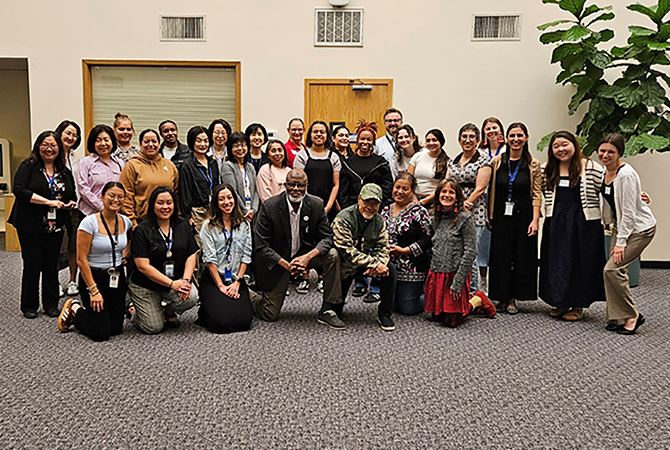SNOHOMISH COUNTY—The Snohomish County Health Department’s six-month Community Navigator Pilot Program, which concluded on June 30, 2025, demonstrated that collaborative efforts with community-based organizations can effectively bridge cultural gaps, build trust, and align public health resources with the specific needs of diverse populations, ultimately fostering more inclusive health and wellness initiatives.

Launched in January 2025, the federally funded program involved 12 community-based organizations and 64 trained Community Navigators, who received financial compensation for their work. These navigators, drawn from groups with strong local connections, focused on representing rural, refugee, low-income, youth, and other underserved communities.
“The program aimed to build a cultural bridge between communities and the Health Department, fostering health and wellness in ways that respect and reflect the unique values and needs of the populations we serve,” said Pia Sampaga-Khim, assistant director for prevention services. She added that it also sought “to better understand these communities’ specific needs and explore how public health resources can be more effectively aligned to support them.”
Navigators were given flexibility to determine their engagement methods, timings, and locations, allowing them to tailor approaches to their communities’ preferences. Compensation was available for up to 60 hours per month per navigator.
Over the pilot’s duration, achievements included organizing community-led public health events, with one event reaching up to 1,500 participants; developing culturally adapted health education materials in various languages; and conducting monthly trainings and workshops on topics like mental health, substance use prevention, chronic disease management, and emergency preparedness. Optional sessions covered areas such as suicide prevention, youth dental care, and dementia, while some navigators participated in a digital storytelling project to highlight community experiences and public health priorities.
“Community-based organizations work tirelessly to keep communities in Snohomish County safe and healthy,” said Cristina Ciupitu-Plath, healthy communities supervisor. “It was a privilege to connect with our partners to learn about and support the important work they do every day. We appreciate their trust, honor their contributions to public health, and look forward to expanding our partnership in the future.”
The program partnered with organizations including the Center for Human Services (CHS), Volunteers of America Western Washington (VOAWW), Project Girl Mentoring Program, Nashi Immigrants Health Board (NASHI), Marshallese Association of North Puget Sound, Oceania Northwest, Korean Community Service Center of Greater Washington (KCSC), Well Being Community Center, Washington West African Center (WAWAC), Latino Educational Training Institute (LETI), Pacific Islander Health Board of WA, and North Counties’ Family Services (NCFS).
An interdisciplinary team from the Health Department, comprising an assistant director, a program supervisor, a health equity policy analyst, two health educators, and an epidemiologist, supported the initiative.
Early feedback indicated the model enhanced public health outreach, strengthened trust, and enabled deeper community engagement. Navigators went beyond distributing materials by customizing them to fit cultural contexts.
Participants shared positive reflections on the program. One navigator highlighted “seeing community members feel genuinely understood and supported after receiving materials in their native language for the first time.” Karina Gasperin of the Well Being Community Center noted, “Having done this kind of work for many years, it has been a true blessing to witness this level of partnership and shared commitment. The collaboration has been fruitful.”
Another navigator recalled “seeing a parent celebrate successfully enrolling their child in kindergarten with support from the group. It reflected the power of community, trust and shared learning.” Svitlana Kryshtanovska, RN, from the Nashi Immigrants Health Board, described her “favorite experience was leading a culturally tailored women’s health workshop and seeing how engaged and appreciative the participants were.”
Meeran Sung of the Korean Community Service Center added, “Watching each participant present their six-week video project during the last session of the digital storytelling training was truly emotional and inspiring.”
The Health Department and its partners are now evaluating successes, challenges, and potential expansions, with insights from the pilot expected to inform future strategies emphasizing equity, trusted community messengers, and localized approaches in Snohomish County’s public health efforts.
Author: Mario Lotmore












